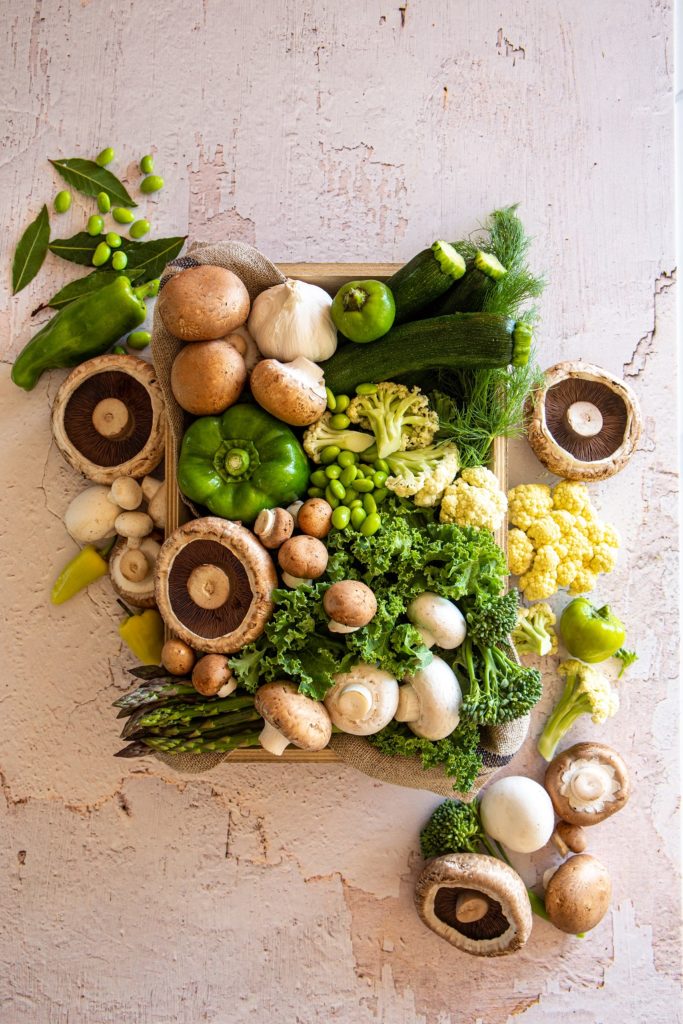There is so much power in the plant kingdom for health and healing. And from vibrant fruits and vegetables, irresistible nuts and grains, to wonderfully delicious and umami-rich mushrooms, it’s all really good eating!
That does not mean you have to turn vegan or vegetarian for a lifetime, or even a day. Setting the record straight, Kathy McManus, who is the Director of the Department of Nutrition and Director of the Dietetic Internship at the Brigham and Women’s Hospital, a teaching affiliate of Harvard Medical School in Boston USA, explains that: “Plant-based or plant-forward eating patterns focus on foods primarily from plants. It doesn’t mean that you never eat meat or dairy. Rather, you are proportionately choosing more of your foods from plant sources.”
But why choose grilled mushrooms over a beef burger, you may ask, even if it’s only occasionally? Well the health benefits of eating mushrooms and other plants are scientifically proven and well documented.
The Permanente Journal, which aims to advance knowledge in scientific research, clinical medicine and innovative health care delivery, in a recent nutritional update wrote: “Research shows that plant-based diets are cost-effective, low-risk interventions that may lower body mass index, blood pressure and cholesterol levels. They may also reduce the number of medications needed to treat chronic diseases.”
If you don’t want to forgo animal products, mushrooms really are an amazing companion food to meat or an excellent meat-substitute due to their meaty texture and adaptable taste profile. They are also easy to find and prepare, making mealtimes a cinch.
A 2016 US study using mushrooms as a plant-based alternative for meat found “that the most important drivers of liking were flavour and texture”, with a meat and mushroom blend being highly palatable to participants.
Some of your family’s favourite dishes can be made with a mix of equal parts meat and fresh mushrooms, a trend known as blendability (look for the #) – think meat feasts like bobotie, lasagne and meatballs. Just chop fresh mushrooms finely and substitute gram for gram for half the meat in whatever you are cooking. This instantly lowers the calories of the dish and ups the deep savoury umami flavour.
In addition, mushrooms can be used to bulk out foods and feed a crowd. They’re perfect for adding to creamy chicken bakes, stews, pie fillings or even breakfast frittatas. The possibilities are only limited by your imagination.
“For many years (mushrooms have) been used for their unique ability to add flavour in lots of different cultures’ cuisines. Mushrooms allow you to add extra taste without sodium or fat,” states Rena Goldman, writing for the peer reviewed medical and health site Healthline.
Simply put, the diverse flavours of mushrooms can expand your palate and reinvigorate your appetite and tastebuds. Visit www.mushroominfo.co.za for plant-based burgers, pizza, buddha bowls and curries that will literally open up your world.
“You can’t go wrong with mushrooms,” says Rena. “They’re fat-free, low-sodium, low-calorie, and cholesterol-free. They’re also packed with fibre, vitamins, and minerals. Nutritional benefits vary depending on the type of mushroom. But overall, they are a good source of antioxidants, beta glucan, B vitamins, copper and potassium.”
Indeed, besides the obvious fact that they provide meal-time satisfaction, mushrooms have the most remarkable medical properties. According to the Harvard T.H. Chan School of Public Health, “perhaps the more interesting properties of mushrooms are their non-nutritive plant substances – polysaccharides, indoles, polyphenols, and carotenoids in which cell and animal studies have shown antioxidant, anti-inflammatory, and anticancer effects.”
The anti-inflammatory properties of fungi are fantastic for healing the human body, and Medical News Today has highlighted that eating a plant-based diet “may serve as a complementary therapy for many conditions that become worse with chronic inflammation.” Try adding more mushrooms to your eating plan to reap the easily accessible antioxidant and anti-inflammatory benefits.
Sadly, there are many myths around plant-based eating, including that you may be nutrient deficient and will always be hungry.
The truth is that “plant-based diets offer all the necessary protein, fats, carbohydrates, vitamins, and minerals for optimal health, and are often higher in fibre and phytonutrients,” insists Kathy.
Nutritionists worldwide agree that mushrooms and plants are the most nutritious foods you can eat. As for hunger, we all know that not all calories are created equal, and comparing cake calories with vegetable calories does not equate. Vegetables and mushrooms particularly are packed with fibre, which fills you up and keeps you fuller for longer, while generally lowering your calorie intake overall.
Something also to consider as you make your food choices is the ability of plants to protect and refresh the earth as they grow, with mushrooms being able to restore soil and many eco-scientists proclaiming mushrooms as one of the answers to climate change, with commercial mushroom cultivation being a highly sustainable crop.
Fungi are good for you and good for the earth – that’s the real magic of mushrooms. And whether you serve them in a sauce on your beef burger, grill Portabellos as the patty, or even use them in place of the buns, once you move to mushrooms you’ll happily never look back.




